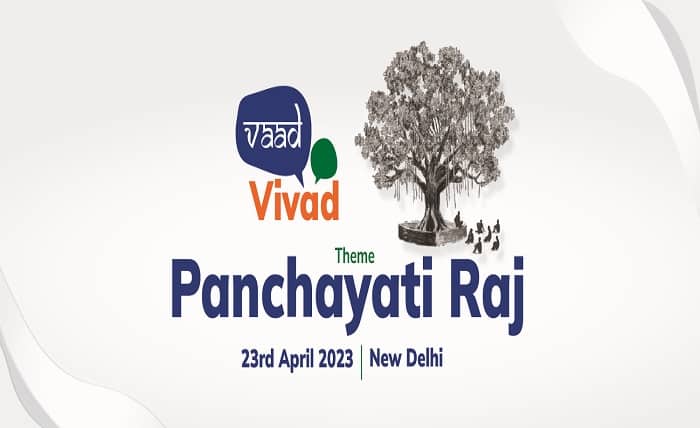Everything You Need to Know About Vaad: Meaning, Usage, and Significance

The Meaning of Vaad in Different Contexts
The word vaad is rich with meanings, varying by culture, language, and context. In general, vaad translates to “discussion,” “assembly,” or “debate.” In some Indian languages, especially Hindi, vaad refers to an argument or discourse, often in philosophical or legal frameworks. For instance, in “tark vaad” (logical argument), the term signifies structured reasoning. This versatile use of vaad makes it integral in academic, social, and spiritual settings.
In Jewish communities, a vaad refers to a council or committee, often responsible for religious, community, or kosher certification matters. Whether in South Asian linguistics or Jewish tradition, vaad consistently centers on structured, purposeful dialogue or decision-making. The importance of vaad lies in its ability to foster understanding, resolve conflicts, and uphold shared values.
Vaad in Philosophy and Logic: Historical Significance
Vaad has played a central role in the evolution of philosophy and logic, particularly in Indian and Western traditions. Ancient Indian philosophical texts like the Upanishads, Nyaya Sutras, and Buddhist scriptures used vaad as a tool for uncovering truth through debate. These vaad sessions, often between sages or scholars, were not mere arguments but structured dialogues aimed at reaching higher knowledge or spiritual enlightenment.
In Western philosophy too, the Socratic method echoes the principles of vaad, emphasizing questions and reasoning over assertions. The idea of dialectic, or logical discussion, is essentially a form of vaad. Understanding these historical roots helps us appreciate how vaad has shaped intellectual traditions and frameworks of ethical reasoning across cultures.
The Role of Vaad in Legal and Judicial Systems
In legal frameworks, vaad takes on a formal dimension, often involving structured arguments in courts or legislative assemblies. In India, for example, vaad refers to litigation or legal dispute — a term frequently found in case files, court procedures, and legal documentation. The essence of vaad in this context is advocacy, argumentation, and judgment.
Judges and lawyers rely heavily on vaad to establish facts, interpret laws, and deliver justice. This use of vaad emphasizes the importance of logic, evidence, and fairness in the decision-making process. In other systems, like Jewish Halachic courts, the vaad acts as a moral and legal authority, guiding religious and civil matters with community consensus and scriptural adherence. Thus, vaad serves as a cornerstone in legal adjudication and conflict resolution.
Vaad in Cultural and Religious Practices
Cultural and religious traditions around the world incorporate the idea of vaad to foster collective decision-making and preserve shared values. In Jewish communities, a Vaad HaKashrut certifies kosher food, while a Vaad HaYeshiva oversees religious schools and curriculum. These vaad-based institutions maintain standards, ensure accountability, and reinforce cultural identity.
In Indian spirituality, vaad occurs in discourses or satsangs where gurus and followers engage in vaad-vivaad (debates). These are not confrontational but educational, focusing on the transmission of wisdom. The vaad becomes a sacred tool for enlightenment, reflection, and moral clarity. Whether religious or secular, the cultural application of vaad promotes community welfare and ethical growth.
Modern Applications of Vaad in Organizational Settings
Today, the concept of vaad has evolved to suit modern organizational and administrative settings. In companies, a vaad can function as a board, committee, or panel formed to evaluate decisions, strategize future goals, or handle grievances. The democratic essence of vaad—inviting multiple perspectives before reaching a consensus—makes it a valuable governance tool.
Educational institutions often establish vaads or councils to manage student affairs, curriculum, or disciplinary actions. NGOs and public sector organizations form vaad-like structures to engage communities in participatory planning. The keyword vaad here represents inclusivity, transparency, and deliberation, vital elements in any progressive institution.
Digital Age and the Evolution of Vaad in Online Platforms
With the rise of digital communication, the spirit of vaad has found new life on forums, webinars, and social platforms. Virtual panels, Zoom debates, Reddit AMAs, and YouTube roundtables all echo the structure of traditional vaad, though in a modern, accessible format. Online communities now create vaad-like spaces to discuss politics, tech, entertainment, and ethics.
Even AI and chatbot discussions mirror the vaad principle — structured exchanges aimed at understanding, questioning, and learning. Platforms like Quora and Stack Overflow operate on communal vaad, where users contribute knowledge through dialogue. The keyword vaad now reflects not only verbal discussions but digital expressions of collective intelligence.
The Future of Vaad in Social and Global Discourse
As global challenges demand collective thinking, vaad becomes increasingly crucial. From climate change to social justice movements, vaad ensures that voices are heard and ideas debated before actions are taken. Public town halls, citizen assemblies, and international think tanks are all manifestations of the modern vaad ethos.
Education systems are also embracing vaad through critical thinking curriculums, debate clubs, and peer-review methods. Even in diplomacy, vaad—or dialogue—remains the only sustainable method of resolving conflicts. The continued relevance of vaad signifies humanity’s enduring need for conversation, empathy, and cooperative problem-solving.
Conclusion
In conclusion, vaad is more than a word—it’s a tradition, a method, and a mindset that continues to shape how we communicate, govern, and grow. Whether in religious councils, legal courts, academic halls, or online forums, vaad encourages thoughtful dialogue, structured reasoning, and communal harmony.
By understanding the power of vaad, we equip ourselves with a timeless tool for resolving disputes, gaining wisdom, and building better societies. In every context—be it spiritual, judicial, organizational, or digital—vaad is the bridge between disagreement and understanding, division and unity, silence and voice.
FAQs
1. What does vaad mean in simple terms?
Vaad means a discussion, debate, or council aimed at resolving issues or reaching decisions, commonly used in legal, religious, or philosophical contexts.
2. How is vaad used in Jewish communities?
In Jewish communities, vaad refers to councils like Vaad HaKashrut or Vaad HaYeshiva, which oversee kosher certification or religious schooling.
3. What is the role of vaad in Indian philosophy?
In Indian philosophy, vaad refers to structured debates used to explore truths and spiritual insights, often seen in ancient scriptures and academic settings.
4. Can vaad be applied in modern workplaces?
Yes, vaad can function as a decision-making committee or board in workplaces, promoting inclusive dialogue, transparency, and collective decisions.
5. How does vaad differ in digital platforms today?
In digital platforms, vaad takes the form of forums, online debates, and community discussions, keeping the essence of dialogue and mutual learning alive.




